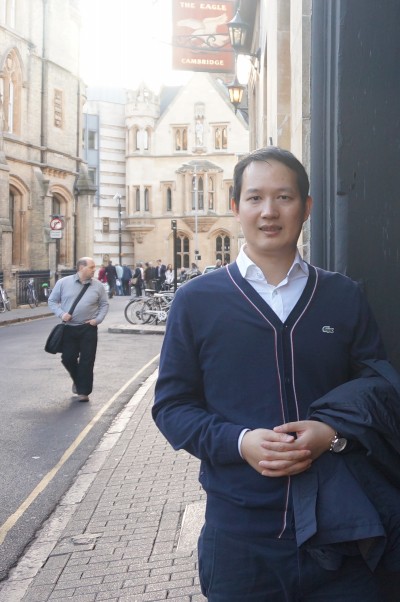主讲人:郑冰寒博士(英国杜伦大学)
讲座主题:翻译过程的认知神经科学研究
讲座时间:2017年3月27日(周一)上午10:00-11:30
讲座地点:武汉大学外语学院3008
内容摘要:
翻译过程的认知神经科学研究
【摘要】对于翻译过程的早期研究可以追溯到1980年代发端于欧陆的实证学派。随着电子科技的发展,翻译过程研究也经历了方法论上的发展。而每一种新方法的引入,都将翻译过程的实证研究推上一级新的台阶。在本讲座中,讲者首先参照James Holmes (1972/2000)的奠基性论断,概述认知神经科学对翻译过程研究的意义。继而介绍目前翻译过程研究中常见的数据收集方法,各自长处缺陷,实验适用性和生态效度。中间将穿插一些案例分析,比如隐喻表达的视译研究,翻译修改过程的眼动和击键记录研究等。最后,讲者将结合近期领衔的跨校跨学科合作项目,为大家呈现如何运用最前沿的神经科学手段(功能性磁共振),深入探索人工翻译过程中的“黑匣子”问题。
Cognitive Neuroscience Inquiries intothe Process ofTranslation
【Abstract】Early researcheson translation processcan be traced back to the empirical school emerged inthe 1980s in European countries. With the development of computational technology, translation process research has undergone a step-change in its research methodology, with the import of each new method visibly moving the research field up to a new and higher level. In this talk, the speaker will firstly provide an introductory discussion on the input of cognitive neuroscience into translationstudies with reference to James Holmes’ (1972/2000) “founding statement”, then turn to the methodological issues by introducing a variety of data collections methods, such as think-aloud protocols, key-stroke logging, eye-tracking, the advantages and disadvantages of each method, as well as their applicability and ecological validity issues. Several case studies applying the above-mentioned methods, such as sight translating metaphorical expressions, eye-tracking and key-logging translation revision process, will be presented as examples.The talk will conclude with an introduction of the speaker’s current interdisciplinary project on cognitive neuroscience of translation, which applies functional magnetic resonance imaging (fMRI), the state-of-the-art technology in neuroscience, into the study of the translating brain of human translators.
讲座嘉宾介绍:
郑冰寒博士杜伦大学现代语言与文化学院副教授(终身教职),授课型研究生部主任,跨文化研究中心主任,翻译学与语言学方向博士生导师。现任世界翻译教育联盟交流合作委员会主席。曾任英国汉语教学研究会主席(2014-2016),剑桥大学丘吉尔学院访问院士(2014-2015)。兼任对外经济贸易大学、广东外语外贸大学、中国矿业大学等校客座教授;中国传媒大学高级研究员。于2016年入选湖北省世界著名科学家来鄂讲学计划。2017年入选华南理工大学海外名师项目。研究方向为翻译认知过程研究、认知语言学、对外汉语教学等。出版著作涉及翻译学和国际汉语教学等领域,并在国际国内核心译学期刊《巴别塔》、《视角》、《翻译与口译研究》、《语言与文化的跨越》、《亚太翻译与跨文化研究》、《外语教学与研究》、《外国语》上发表论文数十篇。目前从事《口笔译的认知神经科学》、《国学智慧与现代管理》、《跨越翻译的界限》等项目;并作为特邀编委,主编国际译学期刊《翻译与口译研究》特刊《比较口笔译研究》。
Dr Binghan Zhengis an Associate Professor, Director of Taught Postgraduate Studies at the School of Modern Languages and Cultures, and the Director of Centre for Intercultural Mediation at Durham University. He is the Chair of Communication and Collaboration Committee, the World Interpreter and Translator Training Association. During 2014-2016, he chaired the British Chinese Language Teaching Society. He was elected as a By-fellow at Churchill College, Cambridge University (2014-2015), appointed as a visiting Professor at University of International Business and Economics, Guangdong University of Foreign Studies, China University of Mining and Technology, and a Senior Research Fellow at Communication University of China.He has also awarded a 3-year grant of “World Famous Scientists’ Lecturing in Hubei”, sponsored by the Department of Education, Hubei Province. In 2017, he was selected as the “Renowned Overseas Professor” by South China University of Technology.His research interests cover cognitive translation studies, cognitive linguisticsandinternational Chinese education. He has published widely in high impact journals, such asBabel,Perspectives,Translation & Interpreting Studies,Across Languages and Cultures,Asia-pacific Translation & Intercultural Studies,Foreign Language Teaching & Research, andJournal of Foreign Languages.He is currently working on several interdisciplinary projects, such as “Neuro-cognitive Studies of Translation and Interpreting”, “Chinese Wisdom and Modern Management”, “Beyond Boundaries of Translation”, andediting (as guest editor) a special issue ofTranslation and Interpreting Studies(John Benjamins) entitled “Towards a Comparative Studies of Translation and Interpreting Studies”.
